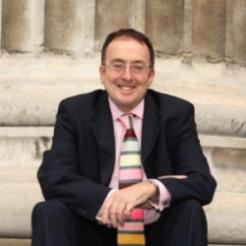The Charity Commission is focused too much on compliance and not enough on guidance, the chief executive of Acevo told a Parliamentary committee yesterday.
The Parliamentary Joint Committee on the Draft Protection of Charities Bill took evidence yesterday from Sir Stephen Bubb, chief executive of Acevo; Lindsey Williams, director of external services at WCVA; Richard Corden, director of Southampton Hospital Charity; Ben Jackson, chief executive of Bond; Dr Hany El-Banna OBE, chair of Muslim Charities Forum and Christopher Stacey, director of services at Unlock.
Bubb told MPs that the Charity Commission's role of providing advice and guidance was being overlooked. He said it is “as important as compliance work” and that the “balance is tipping too much towards compliance”.
He also said the bill was a "nice to have" but the Commission had more important issues to address.
“There are much broader issues about the regulation of a 21st century charity world,” he added.
He told MPs that while Acevo provides support for chief executives it does not have the resources to take up the mantle of providing comprehensive guidance for the whole sector from the Commission. However, he was “not opposed to the idea that we work in partnership”.
Williams said that: “The Commission has some very important powers already that it can use. There is sometimes the perception that it is slow to use them.”
Former minister for civil society Nick Hurd said the committee was getting “mixed messages about whether this bill was a nice-to-have or a must-have”.
Williams said that while WCVA welcomed the bill the new powers contained within it would only be used on “limited occasions and possibly more important would be for the Commission to use the powers it already has a bit quicker and to have a better communications strategy”.
Bubb said: “It certainly isn’t a must-have, it’s a nice-to-have.”
Corden agreed that it was a “nice-to-have” and pointed MPs to the National Audit Office report and the Public Accounts Committee report which called for a “change in culture” at the regulator. But he said there wasn’t “much in the bill that will allow the Charity Commission to do much of anything that it can’t do at the moment”.
Charity Commission’s stance on extremism is damaging Muslim charities
Bubb told MPs that after meeting with Muslim charities, including Islamic Relief Muslim Aid and the Muslim Charities Forum, he was “very concerned about what they were telling me about the problems that have occurred for them as a result of some of the statutory inquiries that have been opened”.
He said the “perception that has been created” is damaging and that the Commission should be working more closely with Muslim charity leaders to help them prevent people in their communities becoming radicalised.
El-Banna said the Muslim Charities Forum would like the Charity Commission to stop releasing the names of charities under inquiry until it had “been proved that they were guilty”.
He also said that the banking industry was a bigger issue than the Charity Commission.
In the “counter-terrorism climate” the problem of extremism is “overestimated”, he said, and called on MPs to include something in the new bill to prevent banks from closing the accounts of registered charities.
“Counter-terrorism legislation is preventing us from having access to the most needy people,” he said, because the “gatekeepers” that charities need to work with to reach people are organisations which the banks have decided are suspicious.
He said the effect is that the banks are becoming “our Charity Commission” as they have “no respect” for the UK regulator.









